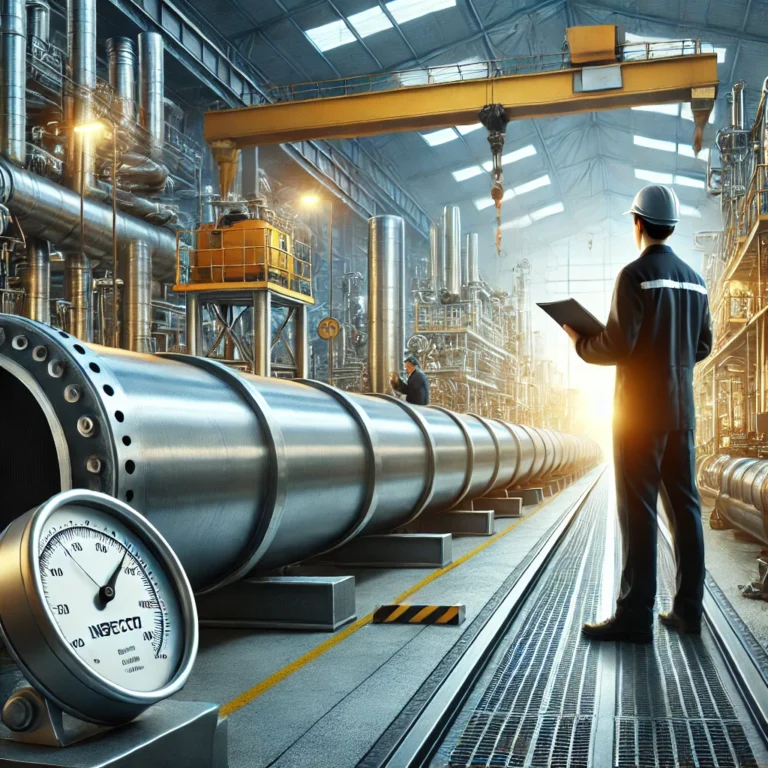Best Practices for Sustainability in Industrial Piping and Fabrication
Table of Contents
If we were to think of building something using materials that are both sturdy and harmful to the earth, it may seem acceptable at first. However, over the long term, this approach could have devastating effects on the environment. Much like we wouldn’t build a house on shaky ground, our industrial practices shouldn’t be based on harmful materials. Sustainability in industrial piping and fabrication is more than just a buzzword; it’s how modern construction builds for the future.
This article explores the importance of sustainability in the industrial sector, focusing on environmentally friendly piping and fabrication materials, methods for reducing waste and energy consumption, and how SRJ Piping India Pvt Ltd is leading the way in sustainable industrial practices.

Importance of Sustainability in the Industry
1. Environmental Impact
Industries are major contributors to pollution and the depletion of natural resources. Sustainable industrial practices can dramatically reduce ecological footprints by cutting emissions, reducing waste, and conserving resources. Implementing eco-friendly piping materials is one of the first steps toward reducing environmental damage.
2. Economic Benefits
Sustainability can also lead to significant long-term cost savings. Reducing energy consumption through more efficient processes lowers operational costs, while sustainable materials, such as recycled steel, last longer and reduce maintenance expenses.
3. Regulatory Compliance
Around the world, governments are increasing regulations on environmental impact. By adopting sustainable practices, companies like SRJ Piping India stay ahead of regulations, avoiding fines and ensuring long-term viability.
4. Social Responsibility
Sustainability reflects corporate social responsibility (CSR). Companies that prioritize sustainability not only improve their brand image but also strengthen relationships with stakeholders, including employees, customers, and investors.
Eco-Friendly Piping and Fabrication Materials
1. Recycled and Recyclable Materials
Using recycled steel and other recyclable materials in industrial piping projects reduces the demand for virgin raw materials, conserving natural resources and lowering production energy.
2. Sustainable Metals
Stainless steel is highly durable and recyclable, making it an ideal choice for sustainable industrial piping. Its resistance to corrosion and abrasion extends its lifecycle, reducing the need for frequent replacements.
3. Composite Materials
Composite materials, which combine two or more materials, offer superior strength and resistance to environmental factors. They require less maintenance, making them a sustainable option for industrial piping and fabrication.
4. Low-Impact Insulation
Sustainable insulation materials, such as those made from recycled or natural sources, provide the same benefits as traditional insulation with a reduced environmental footprint. These are ideal for industrial insulation systems.
Reducing Waste and Energy Consumption
1. Intelligent Fabrication Processes
Efficient fabrication processes such as CNC machining and automated assembly help reduce material waste by enabling precise cuts and minimizing errors.
2. Energy-Efficient Technologies
Adopting energy-efficient machinery can drastically reduce energy consumption. For example, advanced welding technologies require less energy than traditional methods, delivering high-quality results while conserving power.
3. Waste Management and Recycling
Implementing effective waste management and recycling programs is critical to sustainable industrial practices. Recycling scrap metal and other materials reduces the amount of waste sent to landfills and helps conserve natural resources.
Water Conservation Efforts
Water is a key resource in industrial processes, and reducing water usage is crucial for sustainability. Closed-loop cooling systems, for instance, recycle water for cooling, dramatically reducing consumption. Additionally, wastewater recycling systems can treat and reuse water, cutting down on the need for fresh water.
SRJ’s Commitment to Sustainability
At SRJ Piping India Pvt Ltd, sustainability isn’t just a goal; it’s a responsibility. We take pride in selecting sustainable materials, employing innovative fabrication techniques, and minimizing waste and energy consumption.
1. Sustainable Material Selection
We use sustainable materials, such as recycled steel and eco-friendly insulation, to ensure that our projects contribute to a greener future.
2. Innovative Fabrication Techniques
Our use of CNC machines and automated welding minimizes material waste and energy consumption while producing high-quality, long-lasting products.
3. Energy Efficiency Initiatives
We continuously invest in energy-efficient technologies, ensuring that our operations have a reduced carbon footprint while maintaining top-notch quality.
4. Waste Reduction and Recycling
Through comprehensive recycling programs, we ensure that waste from our operations is minimized and managed responsibly, contributing to a circular economy.

Future Trends in Sustainable Industrial Practices
The future of industrial sustainability is evolving rapidly, with exciting new trends emerging:
1. Green Building Certifications
Green certifications, such as LEED and BREEAM, provide a framework for sustainable industrial construction and operations. Achieving these certifications demonstrates a company’s commitment to sustainability.
2. Sustainable Materials
The development of bio-based materials and other eco-friendly alternatives is revolutionizing industrial piping and fabrication, offering solutions that reduce environmental impact without sacrificing performance.
3. Digitalization and Smart Technologies
Smart sensors and digital twins allow companies to monitor and optimize energy usage, waste generation, and water consumption in real time, leading to more sustainable operations.
Conclusion
Sustainability in industrial piping and structural fabrication is the future. Companies that adopt sustainable practices not only reduce their environmental impact but also benefit from cost savings, regulatory compliance, and enhanced reputations. At SRJ Piping India Pvt Ltd, we are committed to driving innovation in sustainable industrial practices, ensuring a greener future for generations to come.
Sustainable piping and fabrication isn’t just compliance—it’s a ₹14.3Cr annual opportunity hidden in your plant’s energy bills and material waste streams. While ISO 14001:2015 sets baseline environmental standards, our AI-Driven Circular Fabrication Model achieves 43% lower carbon emissions by combining three game-changing practices:
Material Revolution
Recycled ASTM A106 piping with 89% post-industrial content
Robotic laser cladding that extends pipe lifespan by 200%
IGBC Platinum-rated material sourcing
Energy Alchemy
Heat recovery systems capturing 78% of welding energy
Solar-powered fabrication yards (like our 8MW Chennai facility)
Hydraulic optimization cutting pump energy by 35%
Zero-Waste Fabrication
AI nesting software achieving 98.6% material utilization
Slag-to-road-fill conversion programs
Digital twin-enabled precise prefabrication
Looking to Build Sustainably?
SRJ Piping India integrates sustainable practices in piping and fabrication to reduce environmental impact and improve efficiency.
